|
My focus this year in my classroom is responsibility, independence, and choice as a path towards agency. This post is to document the scaffolding I have gone through with my grade 3 class this year as we travel along this path together.
It has been a winding journey, and if anything else, I know that my students are witnessing and experiencing true iteration. They have noticed, and even began to collaborate with me on, changes to our planning. As most classrooms around the world, at first our days were planned wholly by me. Then one subject a day was planned by them, slowly building to what we now call 3 "acts" a day which are planned by them. I would like to document and provide these iterations to any teachers wishing to use/adapt them to their own classroom settings. Here is a Google Drive folder where you can find PDF and editable Pages and Word versions of all of these documents (please note these were made in Pages so may not always align properly in Word). A little background information is that I am not working with a team of advisors like #Studio5 at the International School of Ho Chi Minh City are. This model has been my inspiration for my classroom, but it is just me working with my 13 grade 3 students on a modified version that is working for us, and slowly changing every week. Version 1
Our first step was to try this model in Guided Reading sessions only. I knew that my students understood the roles and expectations in GR lessons already, so I felt like this was a great first step for them.
We made a collaborative table that included what they must do (every week), should do (every week or two), and could do (extra time) during a week. At the beginning of the week they would plan all of their GR sessions for the week, including which ATL they were using for that session. For the first week I did not hold any workshops, so that I could attend to any needs or questions as they worked independently. After that, I had one Guided Reading workshop per day for them to sign up for one in the week. Version 2
Once we were comfortable with this routine, we began to plan the same way for math sessions. We created a table of musts, shoulds, and coulds again, and I held 1 reading and 1 math workshop per day, when possible.
In reality, this meant a few different planning papers floating around trays each week... this version did not last too long, even though I had formatted a writing workshop in the same way as preparation for when they would be ready (also in the Google Drive folder of resources.
Version 3
Because there was now multiple papers for each week floating around, I decided to create a weekly timetable for students to fill in. It meant smaller space for them to plan in, but because they were used to this type of personal planning by now, it wasn't too bad for them.
For this iteration, we kept the tables we already made for math and reading workshops/choices. We were not quite ready to incorporate writing into these formats just yet. We started with 1 math choice per day but we learned very quickly that an hour doing the same thing was just too much (especially if they chose something on an iPad). We quickly changed this to 2 math choices, 20-30 minutes each, depending on the day. This works really well for my students. Version 4
This is the version we are currently on. As a class, we decided on a few things together in order to make these changes. The students decided that a checklist for each of them might be easier than looking at the different subject's must, could, should tables all of the time. We also decided to get rid of "math time", "reading time", etc. because students were wanting to do spelling tests, etc. at different times in the day, and also getting confused about which workshops they were doing when. Students can now choose to do anything at any time, but are encouraged to do one math, one reading, and one writing activity per day (if it doesn't work out that way, oh well!) and ensure that tech usage isn't too heavy in one day.
We looked at the Action Cycle (Choose, Act, Reflect) and decided that our mornings would be time for CHOOSING, our so called workshops would be ACT 1, ACT 2, ACT 3, and at agenda book time we would REFLECT on the day. This also came about because we realised that everyone wasn't doing "workshops" all of the time. Workshops were with me, the teacher. On a Monday morning we now choose the workshops for the whole week (as you can see in the checklist, everyone needs 1 AOK math workshop, 1 Application math workshop, 1 reading workshop, and 1 writing workshop). The rest of our activities are planned daily, checking off what we do at reflection time, and writing some sort of daily reflection in their agenda books as well. This is this weeks schedule, so it has some particular items included in the timetable, but you can get the idea.
So far, these iterations are working for us. I am sure that by the end of the year it will look even more different than this. Students and parents are both noticing that both independence and responsibility are improving.
Are you doing something similar with your class? Do you have any thoughts or ideas on how we can improve? Version 5 (Added March 1)
It has only been 1 week since we started using version 4. First thoughts are... WOW their time management skills have SIGNIFICANTLY improved!!! With the checklist always beside their planning they really are learning to prioritize, sometimes even more than I would!
After careful consideration and conversation with my grade 3's, we also decided to split the "should" list. So starting next week there are should's for our week A timetable and then different should's for our week B timetable. Version 6 (April 19, 2018)
See this post for version 6... spoiler alert, we've gone digital!
4 Comments
I'll admit, I am not really much of a reader.
It is hard for me to get into a book, especially during the school year. In the summer I might get through a book or two, when I am really feeling like I have time to relax while travelling. This being said, a number of teaching pedagogy books have caught my eye recently, and I have been extremely motivated to read. I ordered 4 books at the beginning of February and I am already finished 3.5 of them! Most of the books which caught my interest are published by Dave Burgess Consulting.
As soon as I finished, I was excited to dig in to Empower by A.J. Juliani and John Spencer. I read this book in less than 24 hours. I was incredibly hooked with the message and simplicity of this book. The launch cycle it provides for innovation and empowerment is definitely something I would like to be more aware of in my strive to provide a student-led classroom. Launch is another book they have written, which is on my list! Then I read Teach Like A Pirate by Dave Burgess himself (the owner of the publishing/consulting company). I will be honest, this one did not feed my interest as much. I ended up skimming the last 3/4 of the book because I felt that he was more focused on entertaining his high school students than providing them with independence, leadership, and agency. He fully admits this in the foreword of the next book I read, which I did find to be redeeming after the book wasn't what I wanted it to be. I am now currently reading Learn Like A Pirate by Paul Solarz. THIS is much more up my alley. I am only a few chapters in, but can already tell that his passions and interests are more suited to what I want in my classroom. I am feeling the need to take this one a bit slower. Not for a lack of interest, but because I want to digest his suggestions and really let them sink in. I have an ever-growing list now that I've been inspired to read about pedagogy! Launch Kids Deserve It Shift This Social Leadia The Power of Inquiry Dive into Inquiry Inquiry Mindset Lifelong Kindergarten Learner Centered Innovation Anything else do add? Particularly to do with inquiry and student-led classrooms promoting agency?
My 2018 word is "open" - here we go again.
As I take steps towards true student agency in my classroom, there are of course some struggles to work through which I am experiencing, as I am sure many other teachers and schools are at the moment. One of these recent struggles which I have been thinking about a lot since the winter holidays is student motivation in subject areas because of technology that is considered "consumption". In other words, the use of Edtech when students aren't creating, and their motivation behind it. My students are very motivated by apps/websites like Mathletics, Khan Academy, Epic, Math Smash, and more. The core of it is that they are motivated. They want to be engaged in these activities. They prefer the myriad of choices in Epic compared to our small set of classroom or library books which are always the same. They prefer racing other students around the world to improve their mental math skills in Mathletics as opposed to paper drills. They prefer the choice of learning activities in Khan academy where they can choose which part of the math curriculum they feel they need to focus on the most as opposed to me forcing curriculum on them. They prefer fun, game-like math apps like Math Smash as opposed to working from a textbook for review. All of these second options are available to them, but they are motivated by the technology options, and therefore they usually choose them in their weekly planning (more info below*). My struggle: they aren't using this screen time for creation, but consumption. How much to I compromise their motivation just because they are spending time consuming technology at school? If these options are taken away, or lessened throughout the week, will their motivation to learn more in these subjects weaken? Are all of these options considered consumption if they are genuinely learning and improving because of them? They aren't sitting there playing Slitherio or Angry Birds at any point in the day. Is there some sort of middle ground where consumption as learning is still better than consumption as mindless gaming? Thoughts? The struggles continue, but hopefully I am helping my students become more responsible, independent, and flexible along the way. *In our school week, we both create and consume on the iPads and computers. In my class, part of the weekly planning is done by the students. They are currently usually choosing one 30 minute reading focused activity and two 20-25 minute math focused activities per day. On Mondays I check their timetables to ensure that iPad usage is spread throughout the week and each day. I am always shifting and shaping this experience with my students to make it better and am definitely open to suggestions of improvement to help my students. |
Cindy KaardalPassionate Educator and Innovation Coach. Archives
July 2024
Categories
All
|

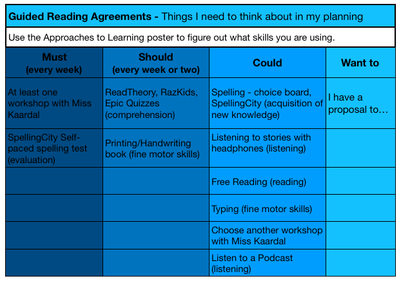
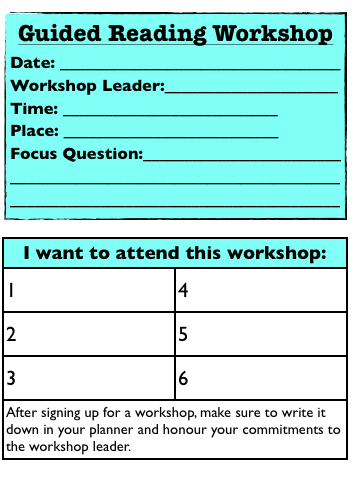

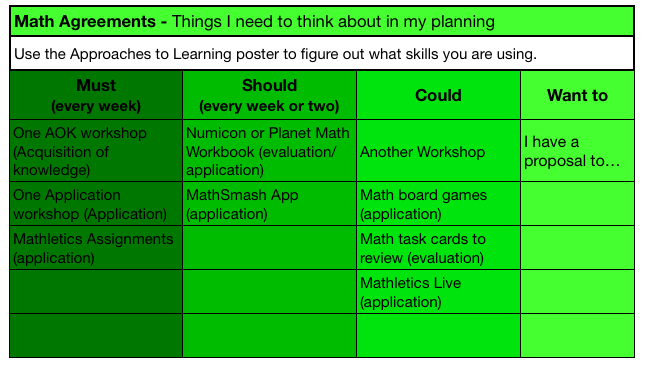
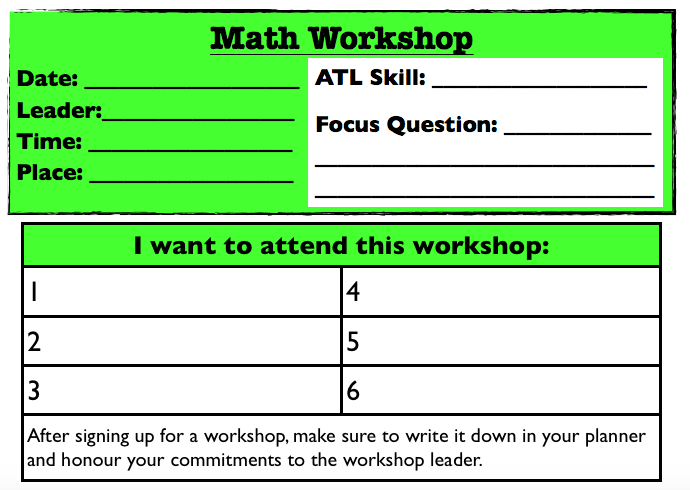
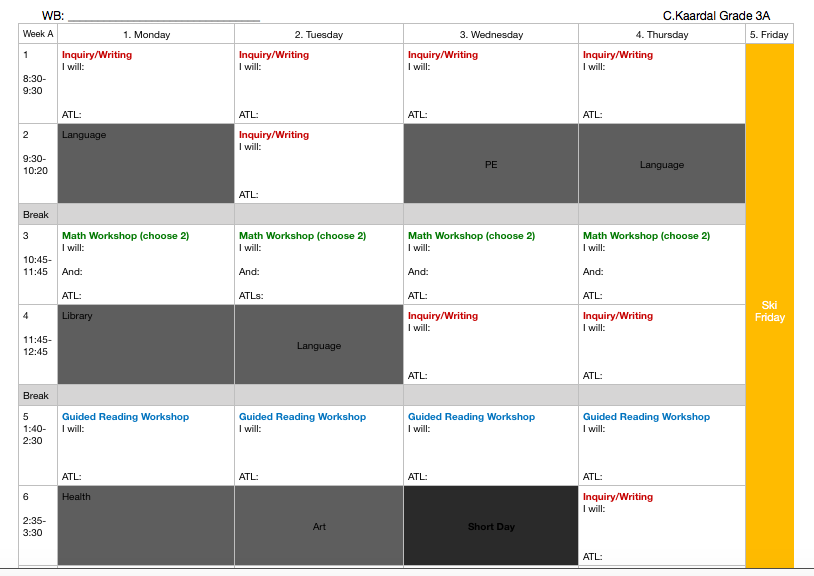
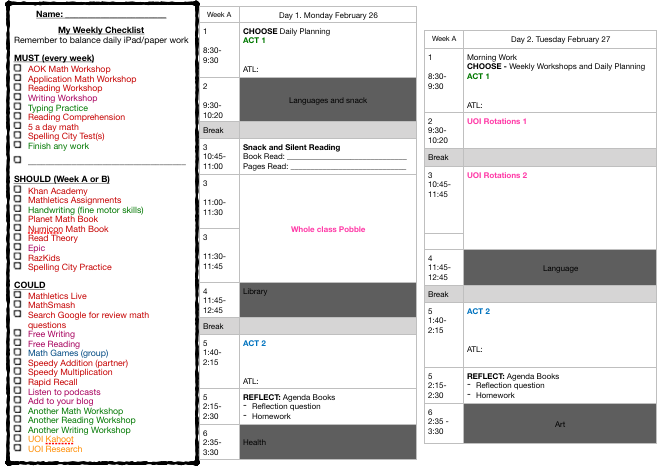
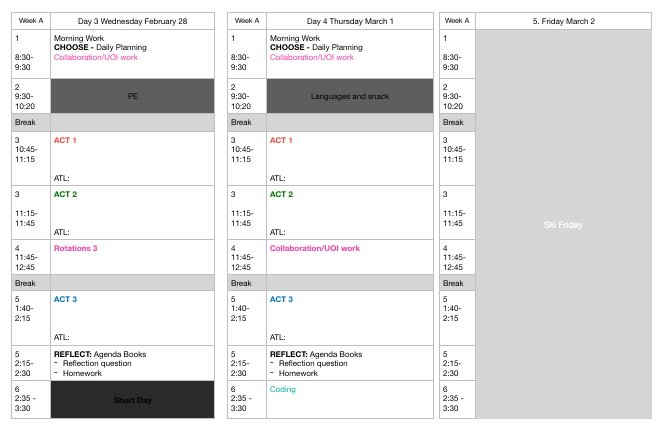
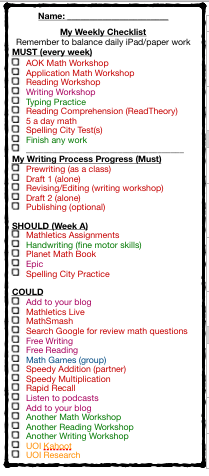
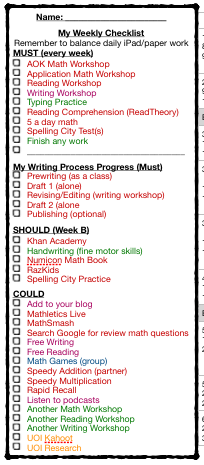
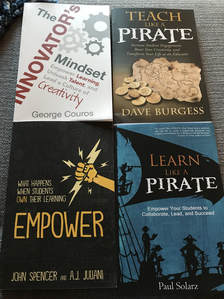
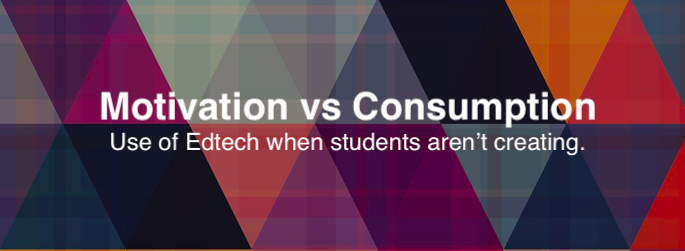
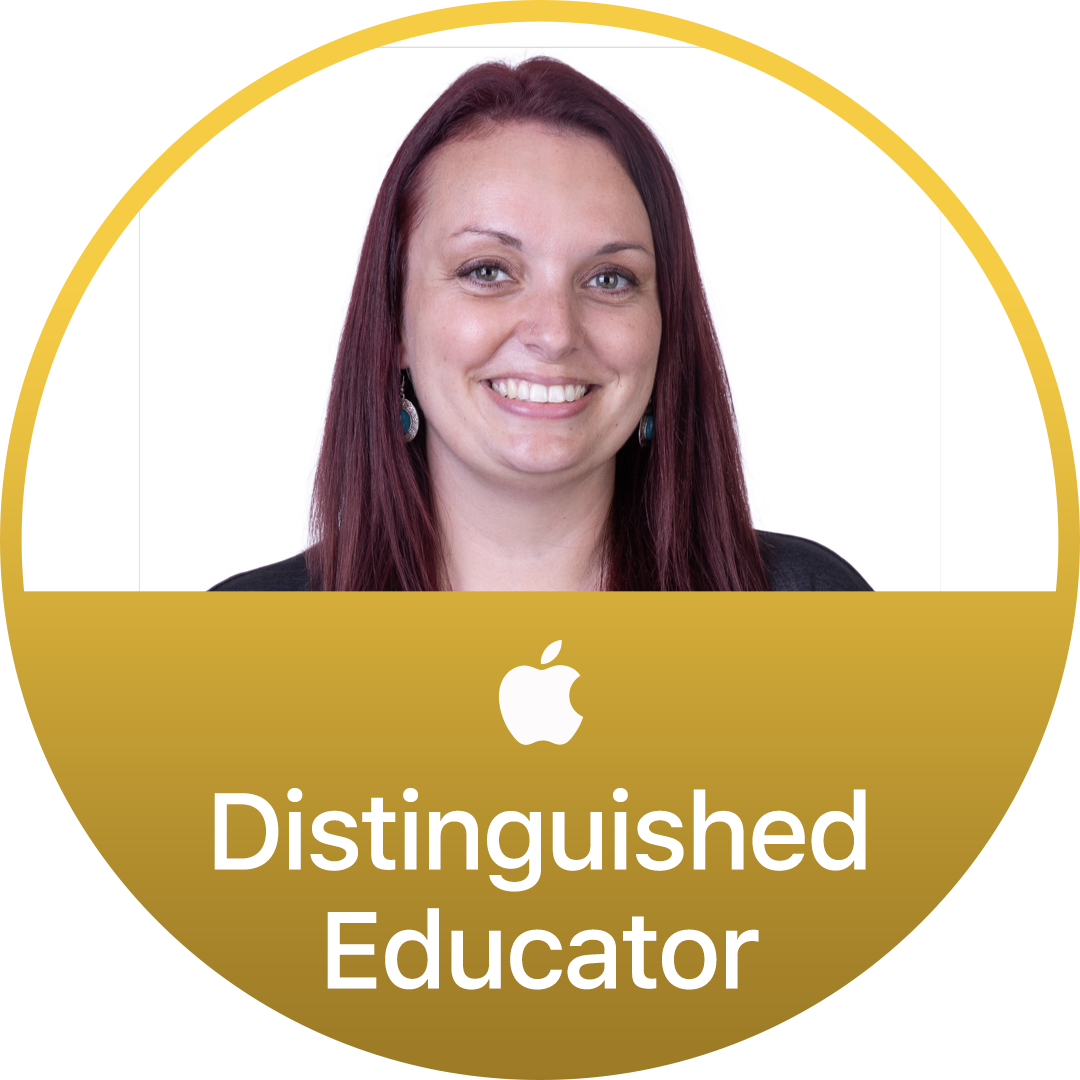


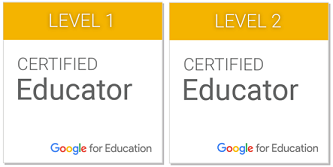
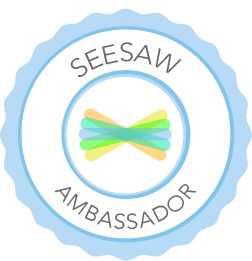
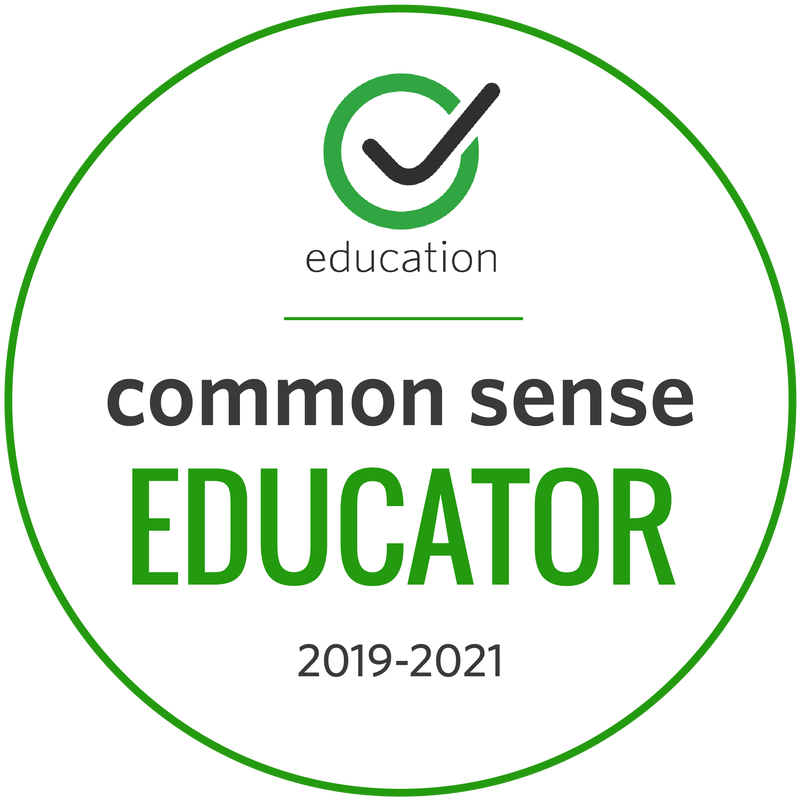
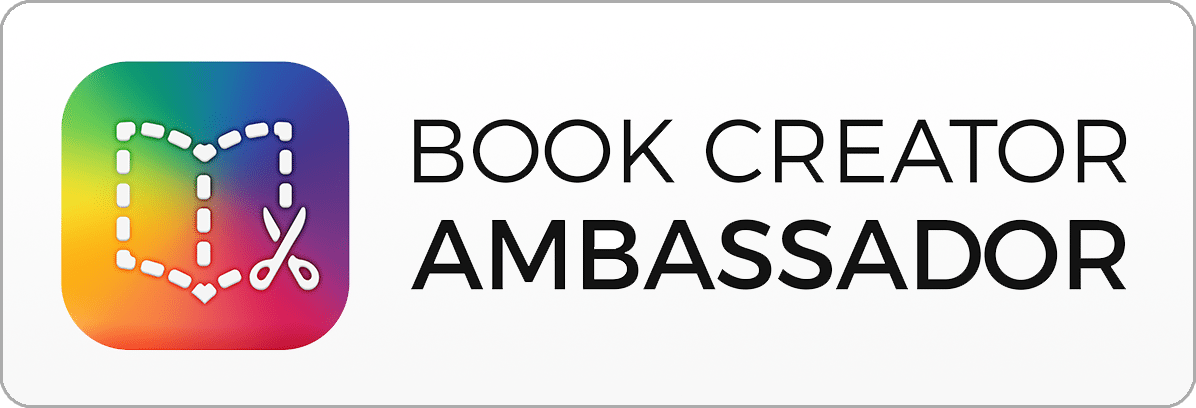
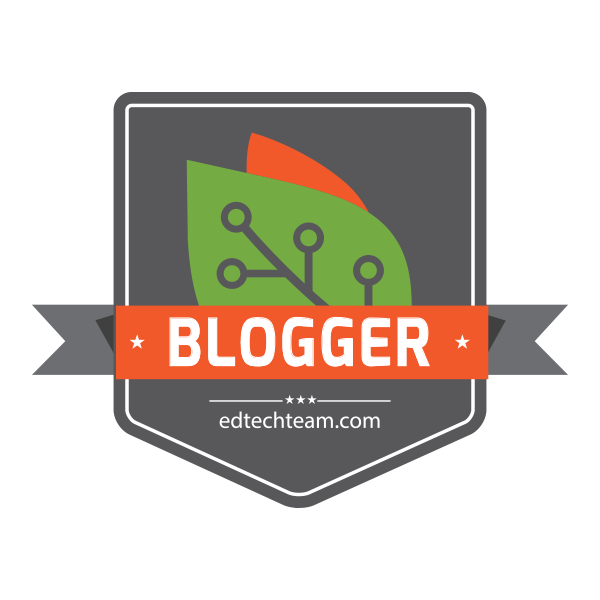
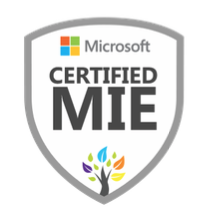
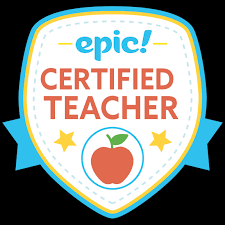

 RSS Feed
RSS Feed